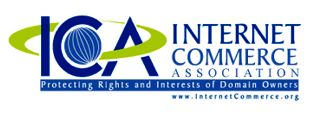|
There
is a disturbance in the Force. Anyone who has recently defended
against a UDRP claim staked against a generic dictionary word or last
name – and lost – has felt it. The de facto rule, seemingly
governing UDRP Panels is “use it or lose it.” Most
Panels now reject the notion that the registration of a dictionary
word or surname domain, alone, creates a legitimate right or interest
in that domain name. Passive holding, a doctrine born out of Telstra
Corporation Limited v. Nuclear Marshmallows [1] – a case
involving the parking of a famous trademark domain – is now
indiscriminately applied, in talismanic fashion, to strip individuals
of their domain names and award them to holders of common dictionary
word trademarks.[2]
First-in-time,
first-in-right
| Absent
an abuse of trademark rights, the laws and policies governing
domain name registration and use were designed to protect the
rights of the party who registers a domain name first, as
against other parties who might assert a claim to the same
domain name. Accordingly, the |
|

|
registration and use
of dictionary words and phrases, as well as surnames and made up
words, should be presumptively legitimate. Indeed, many Panels
have so held. In Target Brands, Inc. v. Eastwind Group,
[3] the Panel determined that “target” is a “generic
term and a common word.” Accordingly, the Panel reasoned
that the complainant could not possibly have a monopoly over any
domain name with the word “target” in it. Citing the
“well-established principle” that “where a domain name is
generic, the first person to register it in good faith is
entitled to the domain name and this is considered a
‘legitimate interest,’” the Panel concluded that the
respondent had rights to and legitimate interests in the domain
name. |
|
In
making the above determination, the Panel cited to numerous
prior UDRP decisions, all of which had similarly held that the
registration of a generic word, itself, gave the registrant
legitimate rights and interests in a domain name.[4]
|
Preferring
trademark owners
Although
there have always been Panelists willing to award generic terms to
even obscure trademark holders, or holders of weak trademarks in a
crowded field, recent UDRP decisions seem to indicate an alarming
trend. For instance in June 2008, a majority of the Panel in
Aspis Liv Försäkrings AB v. Neon Network, LLC, [5] ruled
against a respondent using a domain name comprised of a generic word
for a non-commercial criticism site. As was argued in a strongly
worded dissent, absent any evidence of abusive registration or
commercial use, the majority ruling was neither fair nor in keeping
with the stated purpose of the UDRP.[6]
|
Similarly,
in Michelman, Inc. v. Internet Design, [7] the respondent
claimed that it had registered the domain name <Michelman.com>,
which corresponded to a surname of an abortion activist, for
free-speech purposes. In awarding the domain name to
Michelman, Inc. of |
| Cincinnati, Ohio, an
obscure manufacturer of coatings and emulsions unavailable for
retail purchase, the Panel concluded that the respondent’s
free-speech argument was “concocted.” The Panel also
found that the respondent was not known by the domain name, nor
had it used the domain name “in connection with a bona fide
offering of goods or services.” As such, the Panel found
that the respondent had not demonstrated rights to or legitimate
interests in the domain name pursuant to the UDRP.
Even
in disputes where the outcome is fair, Panels appear
increasingly reluctant to find that the registration of generic
words, alone, establishes legitimate rights to a domain name.[8]
For example, in House of Spices (India) Inc. v. DataNet Inc.,
[9] which was decided in favor of the respondent, the Panel,
nonetheless, stated: “there is, at least in the absence
of other factors, no presumptive right to register a descriptive
or generic phrase.”
|

|
So-Called
Passive Holding
The idea that legitimate rights may only
spring from actual use of a domain name in a developed Web site, or
from plans to develop a domain name into such a site, appears
nowhere in the rules governing the UDRP. It also flies in
the face of common sense and Due Process. Trading in domain
names is, and has been for well over a decade, a legitimate business.
Domain names are many things: Web addresses, assets, keywords,
brands, and identities, but at their most basic level, they are
gateways to ideas. Ideas and the potential locked up in those
ideas can have tremendous value, as we have all seen with the
explosion of Web sites, such as YouTube.com, Facebook.com and
so many others. The simple truth is that there is a struggle for the
finite number of domain names that can exist. Those who have not
turned their ideas into a Web site, or who cannot show demonstrable
preparations to do so, are deemed to be illegitimate holders of their
own intellectual and monetary capital.
Even
in a case where the respondent could show a history of purchasing
surname domain names at auction (<scola.com>),[10] or
where the registrant was a rocket propulsion engineer who worked for
twenty years in the orbital sciences (<orbitalsciences.com>),[11]
or where the respondent grew up on a large spice farm (<houseofspices.com>),[12]
Panels found that the domain names were passively held and that the
Respondents had failed to establish legitimate rights to the domain
names.
|

|
The
obvious danger that these cases represent is that they undermine
the fundamental principal that first-in-time is first-in-right.
They encourage the holders of weak marks in a crowded field to
file proceedings, thus, increasing the amount of domain name
litigation and increasing the costs to domain investors.
They force registrants to make alternative, stop-gap uses of
their domain names, then often hold that such uses, including
parking and the creation of directory style links, are not
|
| legitimate
or valuable uses. Most troubling, the Panels appear to
make a conscious choice to award generic, dictionary word domain
names to the parties whom the Panels feel will best put those
domain
names to use – the trademark holders. |
Eminent
Domain
In
certain respects, the UDRP process is effecting a shift in control
from registrants to corporate interests, much in the way that the
government condemns property and awards it to developers under its
power of eminent domain. One significant difference, however, is
that in the case of the exercise of the State’s eminent domain
power, there are Constitutional requirements that a taking be subject
to just compensation. Another difference is that these domain
name takings are not being brought about by the government, but rather
by arbitrators hired by private companies accredited and entrusted
with ensuring the fair disposition of domain name disputes.
There
are undoubtedly cases where non-use of a domain name corresponds with
the intent to trade off of the notoriety of a famous trademark.
There are, however, many cases where the fundamental right to register
a generic or dictionary term is a right that should be recognized.
In these cases, it should be up to the owners of the domain names to
realize the potential of their domain names—or not. It is time
for ICANN, NAF and WIPO to inject fairness back
into the process.
House of Spices (India) Inc. v. DataNet Inc.,
D2007-0845 (WIPO Sept. 25, 2007).
|
|
| So
what can be done about the anti-domain owner trend Brett has
detailed is his article? I know this has become my stock
answer, but I don't see a better option anywhere on the
horizon - |
| that is to join
and support the domain industry trade association - the Internet
Commerce Association. The non-profit group is
working to prevent the kind of abuses cited in this article
and to counter attempts to change laws via the U.S.
Congress that would make it easier to strip domain
owners of their assets (this year's |

|
| Snowe
Bill being one prime example). The ICA helped derail the
Snowe Bill but that was just one volley in a war that will
intensify in the months and years ahead. Complacency is no
longer an option. |
|

